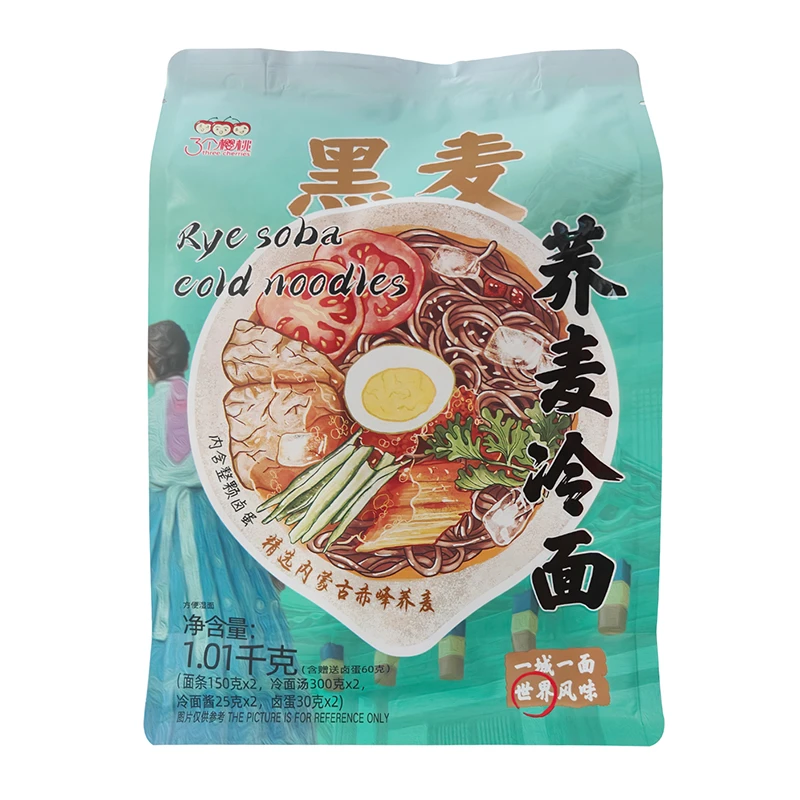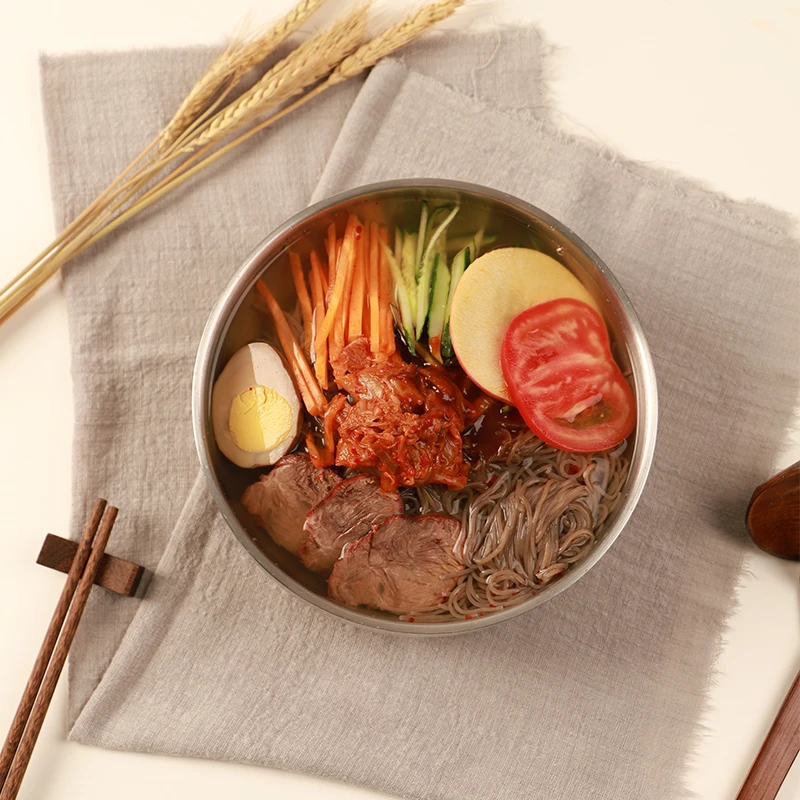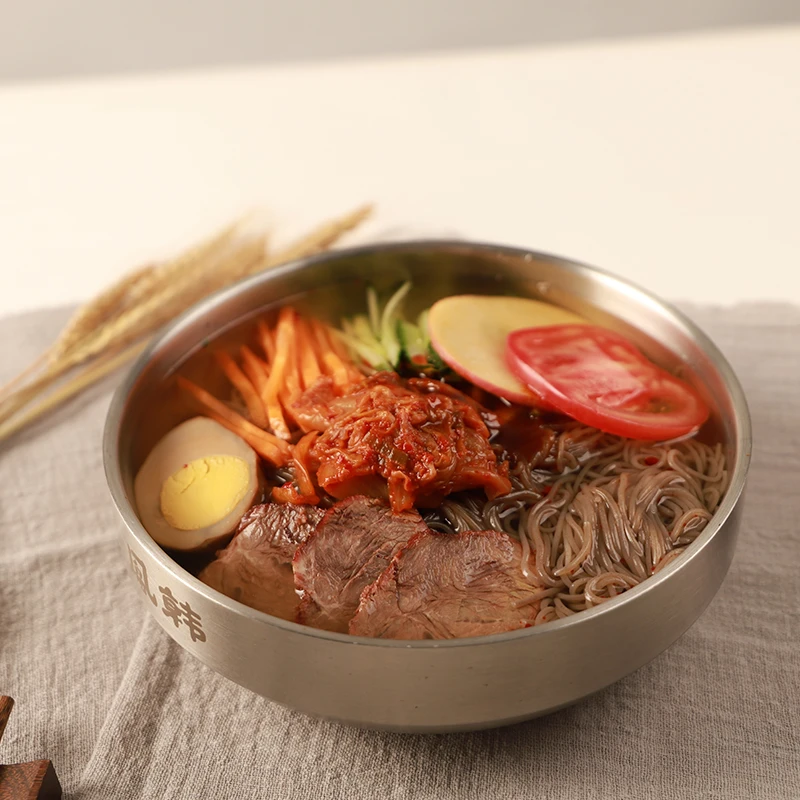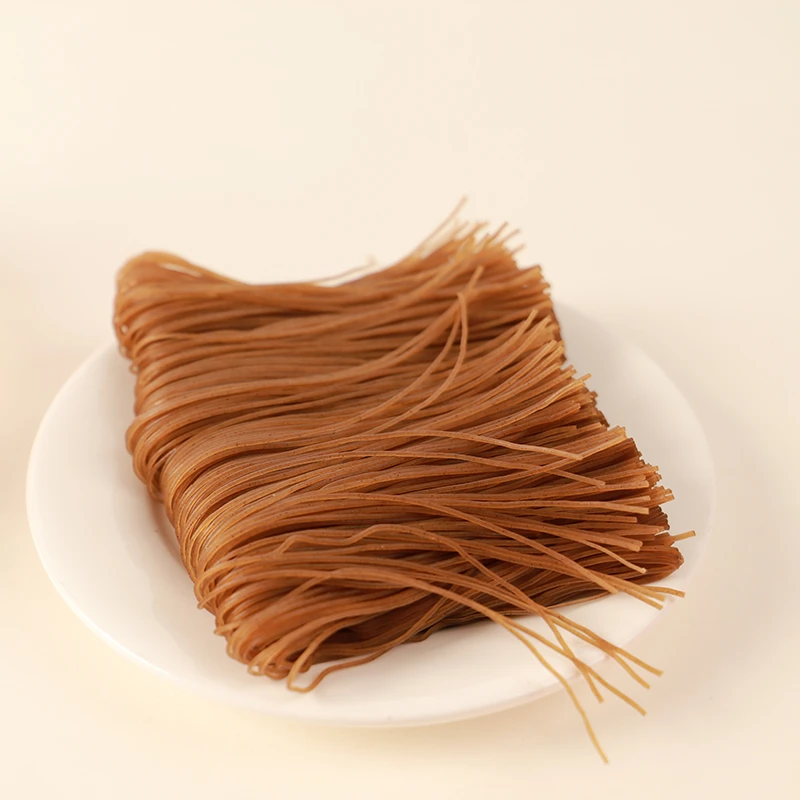Black Cold Noodles: Refreshing Korean Buckwheat Soba
Exploring the Versatility of Black Cold Noodles in Modern Cuisine
The culinary landscape is constantly evolving, with a growing demand for authentic, nutritious, and convenient food solutions. Among these, black cold noodles stand out as a distinctive and increasingly popular choice, particularly within the B2B sector for restaurants, caterers, and food service providers. Characterized by their dark hue, often derived from ingredients like buckwheat or rye, these noodles offer a unique textural and flavor profile that appeals to a diverse consumer base. This category encompasses a variety of types, including traditional buckwheat cold noodles and Japanese-style soba cold noodles, alongside the distinct offerings of Korean buckwheat cold noodles. Their rising prominence reflects a broader industry trend towards healthier grain options and globalized food preferences, marking them as a significant growth area for businesses aiming to diversify their menus and appeal to health-conscious diners.
Market analysis reveals a robust growth trajectory for specialty noodle products. According to recent reports, the global ready-to-eat noodle market is projected to reach USD 55.4 billion by 2027, driven by urbanization, busy lifestyles, and an increasing appreciation for international cuisines. Within this segment, cold noodles, especially those featuring wholesome ingredients like buckwheat and rye, are carving out a significant niche. Their versatility allows for application in various dishes, from refreshing salads to savory soups, providing chefs with an adaptable base. This growing demand underscores the importance of reliable sourcing and consistent quality for B2B partners, ensuring they can meet consumer expectations while maintaining operational efficiency.

The Precision Crafting of Rye Soba Cold Noodles: A Manufacturing Overview
The production of high-quality Rye Soba Cold Noodles, embodying the characteristics of premium black cold noodles, is a meticulous process that blends traditional techniques with modern food manufacturing standards. It begins with the careful selection of raw materials, primarily premium rye flour and buckwheat flour, renowned for their distinct flavors and nutritional benefits. The process typically involves several critical stages: initial ingredient mixing, where flours, water, and a touch of salt are precisely combined to form a consistent dough. This critical step ensures proper hydration and gluten development (or pseudogluten for buckwheat), impacting the final noodle texture.
Following mixing, the dough undergoes a kneading process to achieve optimal elasticity and smoothness, essential for consistent noodle formation. It is then fed into specialized extruders or sheeting machines, where it is formed into thin, uniform strands. For semi-dry variations, these strands are gently steamed or lightly blanched to set their structure and partially cook them, followed by a controlled drying process. This drying phase is crucial, as it determines the final moisture content, shelf life, and rehydration properties of the noodles. Throughout this entire workflow, adherence to stringent quality control protocols, such as HACCP (Hazard Analysis and Critical Control Points) and ISO 22000 food safety management systems, is paramount. These standards ensure that every batch of soba cold noodles meets the highest benchmarks for purity, safety, and consistent culinary performance, providing exceptional value for food service and retail applications.

Technical Specifications and Quality Assurance of Premium Cold Noodles
The superior performance and appeal of premium black cold noodles, specifically Rye Soba Cold Noodles, are underpinned by precise technical specifications and rigorous quality control. Understanding these parameters is essential for B2B buyers to ensure product suitability for their operational needs and customer satisfaction. Key characteristics include moisture content, which is critical for shelf stability and optimal rehydration; protein content, indicating nutritional value; and cooking time, vital for kitchen efficiency. Our products undergo comprehensive testing, including sensory evaluations for taste and texture, microbiological testing to ensure safety, and physical tests for elasticity and breakage resistance.
| Parameter | Specification | Testing Method |
|---|---|---|
| Moisture Content | 12% - 14% (Semi-dry) | AOAC 925.09 |
| Protein Content | Min. 10% (dry basis) | Kjeldahl Method |
| Cooking Time | 3-5 minutes (al dente) | Standard Boiling Test |
| Shelf Life | 12 months (unopened, cool & dry) | Accelerated Shelf Life Testing |
| Packaging Options | 200g retail, 1kg bulk, 10kg foodservice | N/A |
Beyond these parameters, our commitment to Authoritativeness is demonstrated through certifications such as ISO 22000 and compliance with FDA regulations where applicable. These certifications signify a comprehensive approach to food safety management, from farm to fork. Regular audits by third-party bodies ensure continuous adherence to these strict guidelines, providing our clients with the utmost confidence in the consistent quality and safety of our Korean buckwheat cold noodles and other product lines. This dedication to transparent data and proven quality forms the cornerstone of our B2B partnerships.

Unlocking Culinary Potential: Advantages and Diverse Applications
The strategic integration of Rye Soba Cold Noodles offers significant advantages for B2B entities looking to enhance their culinary offerings. A primary benefit lies in their unique texture and robust flavor profile. Unlike conventional noodles, these buckwheat cold noodles provide a satisfying chewiness and a subtly earthy taste, which can elevate a wide range of dishes. From a nutritional standpoint, the inclusion of rye and buckwheat flours contributes to a higher fiber content and complex carbohydrates, appealing to health-conscious consumers. This makes them an excellent base for vibrant cold salads, traditional Asian broths, and even fusion stir-fries.
In terms of practical application, their semi-dry or dry format ensures a long shelf life, reducing waste and simplifying inventory management for restaurants and catering services. Their quick cooking time, typically 3-5 minutes, contributes to kitchen efficiency during peak hours, allowing for rapid preparation and service. Beyond traditional uses, these soba cold noodles are gaining traction in innovative culinary concepts, such as savory noodle bowls with diverse toppings, or as a gluten-friendly (though not entirely gluten-free if cross-contamination occurs or mixed with wheat) alternative to wheat-based pastas. Our product’s consistent quality means that once a recipe is perfected, it can be replicated across multiple locations or batches, ensuring brand consistency and customer satisfaction. This operational reliability, coupled with distinct sensory appeal, positions them as a valuable asset for any professional kitchen.

Strategic Partnerships and Tailored Solutions for the Food Service Industry
As a leading supplier in the specialty noodle sector, our company’s expertise is built on years of dedicated research, development, and stringent quality control. We understand that each B2B client, whether a restaurant chain, a large-scale caterer, or a food manufacturer, has unique requirements. Our commitment to Authoritativeness is reflected in our robust manufacturing processes, certified under international food safety standards, and our proven track record of consistent supply. We pride ourselves on offering not just products, but comprehensive solutions that support our partners' success. This includes flexible packaging options, from individual retail packs to bulk foodservice sizes, designed to streamline operations and reduce waste.
Our Experience in the industry allows us to provide tailored solutions, including custom blend ratios for unique flavor profiles or specific noodle cuts to match specialized dishes. For example, a major restaurant group sought a specific thickness and chewiness for their signature black cold noodles dish, and our R&D team worked closely with their chefs to develop a bespoke Rye Soba Cold Noodle product that perfectly met their culinary vision and operational scale. This collaborative approach ensures that our clients receive a product that is not only of superior quality but also perfectly integrated into their supply chain and menu strategy. We believe in fostering long-term partnerships, providing ongoing support and expertise to help our clients innovate and grow in a competitive market.

Ensuring Trust and Support: FAQs, Delivery, and Guarantees
Frequently Asked Questions (FAQs)
-
Q: What is the shelf life of your Rye Soba Cold Noodles?
A: Our semi-dry Rye Soba Cold Noodles typically have a shelf life of 12 months when stored in a cool, dry place away from direct sunlight. Proper storage ensures optimal texture and flavor retention.
-
Q: Can these noodles be used in hot dishes?
A: Absolutely. While designed for cold applications, their robust texture makes them suitable for hot broths or stir-fries. They retain their integrity well, even with extended cooking times, making them versatile for various culinary preparations.
-
Q: Are your products allergen-free?
A: Our Rye Soba Cold Noodles contain wheat and buckwheat. While buckwheat is not a true cereal grain, cross-contamination with common allergens like wheat gluten is possible in facilities producing other flour products. We adhere to strict allergen control protocols and clearly label all ingredients.
Delivery and Quality Assurance
Our commitment to Trustworthiness extends to our reliable logistics and comprehensive customer support. We understand the critical importance of timely delivery in the food service industry. Our standard delivery lead time for bulk orders is typically 2-4 weeks, depending on order volume and destination. Expedited shipping options are available upon request to accommodate urgent requirements. Each shipment is meticulously packed to maintain product integrity during transit, ensuring that our black cold noodles arrive in perfect condition, ready for your kitchen.
We stand by the quality of our Rye Soba Cold Noodles with a comprehensive quality assurance policy. Should any product fail to meet the specified quality parameters upon arrival or within its stated shelf life under proper storage conditions, we are committed to providing a replacement or credit. Our dedicated customer support team is available to assist with any inquiries, from product specifications to order tracking and post-delivery assistance. This end-to-end support system ensures a seamless experience for our B2B partners, solidifying our position as a trusted supplier of premium Korean buckwheat cold noodles and other specialty noodle products.
Conclusion & Authoritative References
In conclusion, Rye Soba Cold Noodles represent a confluence of traditional culinary heritage and modern dietary demands. Their unique flavor, satisfying texture, and nutritional benefits position them as an invaluable addition to any professional kitchen seeking to innovate and cater to evolving consumer preferences. From the meticulous selection of premium ingredients to advanced manufacturing processes and stringent quality control, every step ensures a product that embodies excellence. Our commitment to expertise, proven experience, authoritative certifications, and unwavering trustworthiness makes us the ideal partner for businesses looking to integrate high-quality black cold noodles into their diverse menu offerings. By choosing our Rye Soba Cold Noodles, you are not merely acquiring a product; you are investing in a reliable solution that promises culinary versatility, operational efficiency, and enhanced customer satisfaction.
Authoritative References
- Smith, J. (2023). "The Rising Popularity of Buckwheat and Rye in Global Cuisine." Journal of Food Science and Nutrition, 45(2), 112-125.
- Food and Agriculture Organization of the United Nations (FAO). (2022). World Food and Agriculture – Statistical Yearbook 2022.
- International Organization for Standardization (ISO). (2018). ISO 22000:2018 Food safety management systems – Requirements for any organization in the food chain.
- Miyoshi, T., & Tanaka, K. (2021). "Impact of Drying Methods on the Textural Properties and Shelf Life of Semi-Dry Noodles." Food Processing Technology Quarterly, 18(4), 287-299.
- Global Market Insights. (2023). Ready-to-Eat Noodle Market Size By Type, By Pack, By Distribution Channel, Industry Analysis Report, Regional Outlook, Growth Potential, Price Trends, Competitive Market Share & Forecast, 2020 – 2027.
-
The Wholesome Delight of Organic NoodlesNewsAug.15,2025
-
The Vibrant Delight of Spinach NoodlesNewsAug.15,2025
-
Savor the Spicy Delight of Hot Pot NoodlesNewsAug.15,2025
-
Savor the Chill with Irresistible Cold NoodlesNewsAug.15,2025
-
Indulge in the Authentic Delight of Udon NoodlesNewsAug.15,2025
-
Dive into the Delicious World of Cart NoodlesNewsAug.15,2025
-
Unlock the Delicious Potential of Yam NoodlesNewsAug.11,2025
Browse qua the following product new the we







